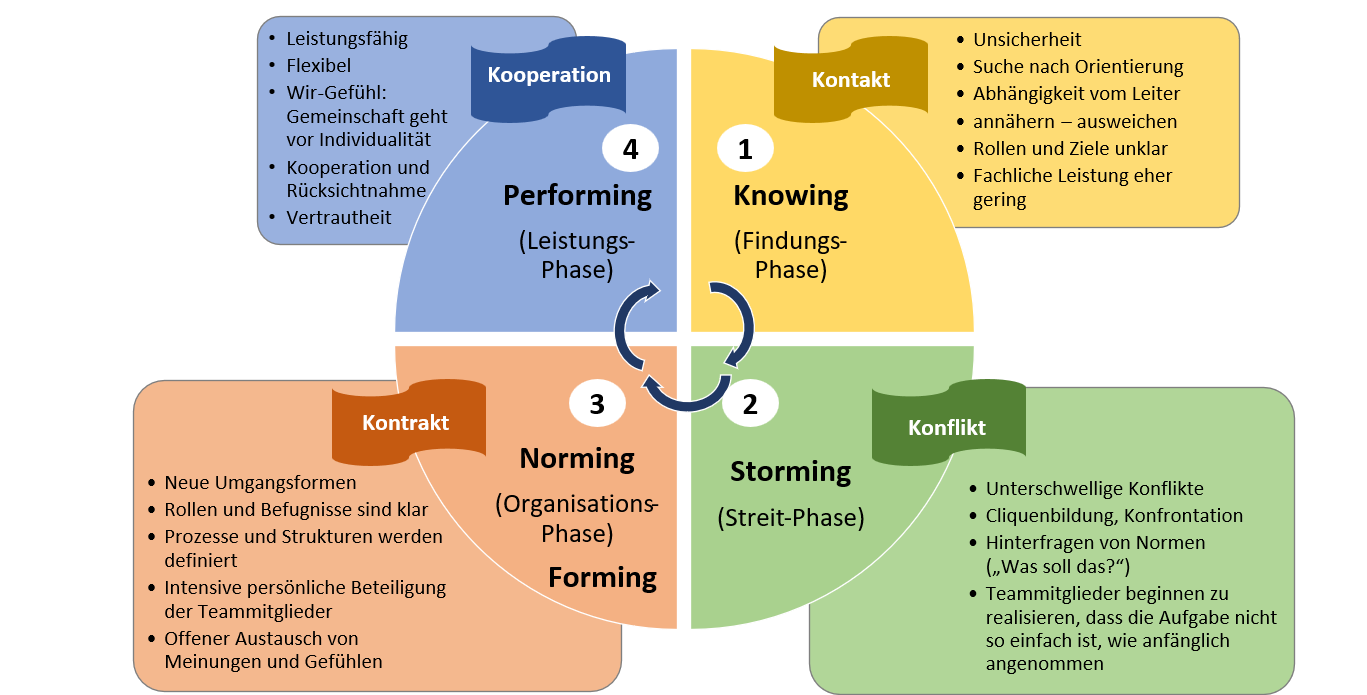Team Development Clock
Recognize and understand the 4 phases of team development.
Team Development Clock
Team Development Clock
The Team Development Clock is a phase model for team development, created in the 1960s by American psychologist Bruce Tuckman. It describes the 4 steps a group goes through when completing a task or project.
It's important to note that the trainer or group leader is not part of the team!
Below, we describe each phase of the Team Development Clock in more detail.

Contact Phase
The Contact Phase, also known as the Knowing or Forming Phase, is about orientation. Since group members usually don't know each other yet, interactions are often reserved and formal. It's crucial to give each participant space and encourage them to present themselves well. Because there are no clear goals or processes yet, the group's performance is low at this stage.
The trainer's or leader's task is to inform the group about the processes and support them in getting to know each other. This helps participants feel comfortable quickly. It's important not to spend too much time in the Forming Phase, so the group can move to the next phase soon.
Conflict Phase
The Conflict Phase, also known as the Storming or Dispute Phase, is the peak of group dynamics. Members get to know each other better and realize who they get along with and who they don't. Interests are asserted, coalitions form, and norms are questioned. This naturally leads to smaller groups and creates tensions and conflicts. The group's performance remains low, as the focus is on internal issues.
In this phase, the so-called Trainer Testing / Trainer Bashing occurs. A strategic procedural question can channel conflicts and initiate controlled group formation.
The trainer's or leader's task is to balance mediating and pushing the group forward. Conflicts should be addressed directly, allowing everyone to express their opinions. This creates an open atmosphere and prevents escalation, helping the group refocus on project goals.
Contract Phase
The Contract Phase, also known as the Norming or Organizing Phase, is the third phase of the Team Development Clock. Resolving conflicts in Phase 2 leads to role distribution within the group. This encourages solution-oriented work and initial results.
The trainer's or leader's role is now to guide the group, acting as a coach. The focus is mainly on task orientation.
Cooperation Phase
In the Cooperation Phase, also known as the Performing or Achievement Phase, the group works productively. Members focus on goals, setting aside personal interests to achieve the common goal.
The group interacts respectfully, knowing and valuing each member individually.
The trainer should step back, allowing participants to develop and meet objectives. There's little need for the trainer to intervene in group interactions.
